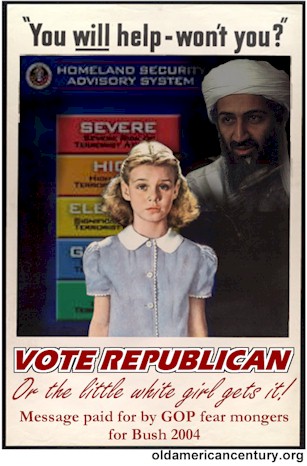Historians dissect war in Iraq
Eminent academics scrutinize the single most important issue in the presidential campaign and find two central truths: quick success, long-term problems
There was one exception to that overall consensus: Victor Davis Hanson, of Stanford's Hoover Institution, who was bold enough to predict that "in five years, if we persevere, there will be a stable consensual government, and then both Iraq and Afghanistan will properly be seen as the anchors of a new Middle East".
Which is, of course, exactly what I thought to myself as I opened up the article: that if any voice dissented from the overall consensus ("reality"), it would be one associated with an identifiably "conservative" institution like the Hoover Institute (who give my great uncle a bad name). ... because, of course, these organizations don't pay their "fellows" to do anything but toe the party line.
Side note: I've been making a habit of reading through the paper each day... I find that you get more out of a paper that way, as you see stories develop over time, and you begin to follow larger threads in the news that transcend individual stories. Admittedly, the San Francisco Chronicle, in comparison to the Los Angeles Times (the paper I grew up reading) is mediocure at best, but it is still better than nothing. I find reading a paper exposes me to a wider variety (in terms of topics and points of view) than merely getting my news on-line. This is a change from my previous position that "I get all my news on-line and don't need a paper."
Side, side note: Debra Saunders really is a Republican talking point parrot. We need more people writing the Chronicle and other papers complaining about this phenomenon, wherein allegedly "independent" pundits spew Republican talking point propaganda in barely edited form.
--Thomas Leavitt





